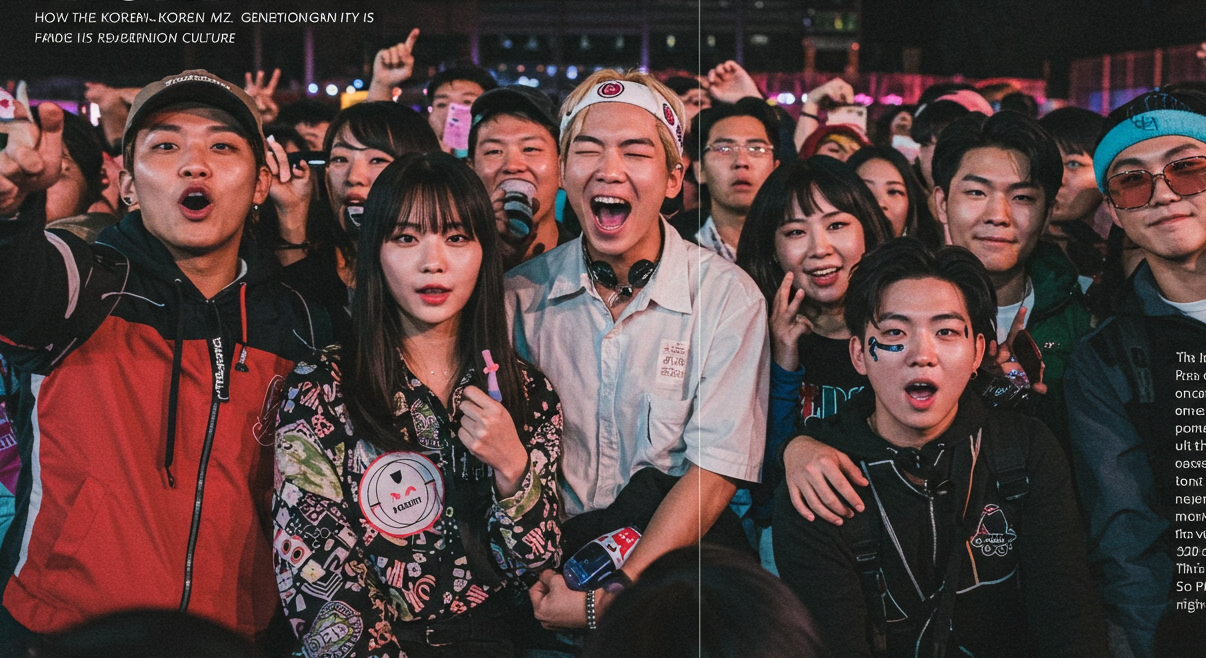
More Than Just Music
The general public associates K-pop with its popular music, precise dance moves, and devoted fan communities. But fandom culture in South Korea has become something much more.
The Korean MZ Generation (Millennials and Gen Z) is now leading a cultural transformation—one that redefines what it means to be a fan.
They no longer only support idols. They follow and support webtoon artists, indie filmmakers, fashion designers, and even social activists.
Fans don’t just cheer—they act. They donate, organize, and advocate.
Digital Fandom Is a Force
Thanks to social media, Korean fans have powerful tools. They edit videos, create art, translate content, and even coordinate global events.
Fan archives live on platforms like Twitter (X), Instagram, and Notion. These aren’t just posts—they’re digital museums. They show love through detail, creativity, and effort.
Korean MZ fans have become content creators in their own right.
From Online to Offline: Cafés, Ads, and More
Fandom doesn’t stop online.
Fans in Korea host birthday cafés, decorate venues, design custom drinks, and produce exclusive merchandise.
People even travel from overseas just to attend these events in Seoul.
And that’s not all—ads in subways and bus stops, food truck services during drama shoots, and real-life forest donations in celebrities’ names all come from fans.
A Culture of Giving
The Korean fan culture includes charity.
Fans raise money for children’s hospitals, animal shelters, and disaster relief, all in the name of their favorite stars.
Fandom is not just about admiration—it’s about values.
Korean MZ fans show that being a fan can also mean being part of a better world.
Beyond Pop Idols: A New Fandom Frontier
Today, Korean fans don’t just follow K-pop idols. They cheer for YouTubers, philosophers, e-sports players, and indie creators.
Anyone creating meaningful content can be admired and supported.
For Korean MZ fans, fandom is built on emotional connection, storytelling, and shared community.
Final Thoughts: This Is the New Fandom
Fandom is no longer passive.
Thanks to the Korean MZ generation, it has become active cultural participation.
Through digital art, fan cafés, and global donations, these fans are shaping not only pop culture but society itself.
The label “K-pop fan” now means so much more.
And the world is starting to notice.
“Actually, This Might Be Better”: Korean Gen Z’s Emotional Strategy for Uncertainty
Beyond Fandom: How Culture Shapes the Identity of Korean Gen Z
Solo Culture in Korea: Alone, but Fulfilled